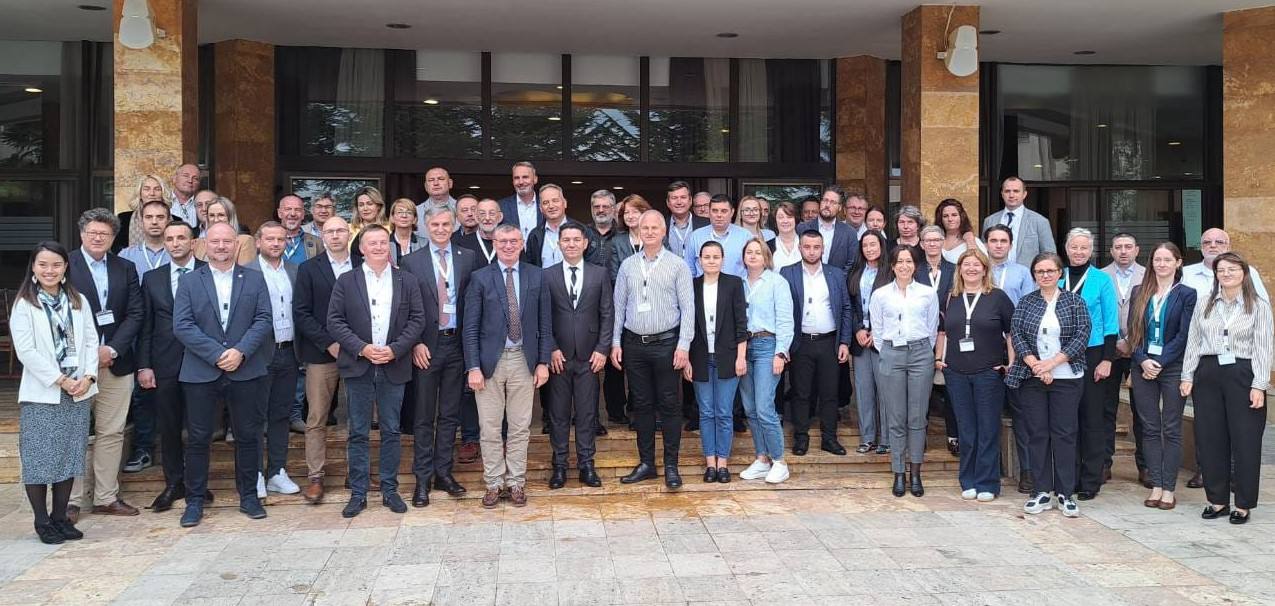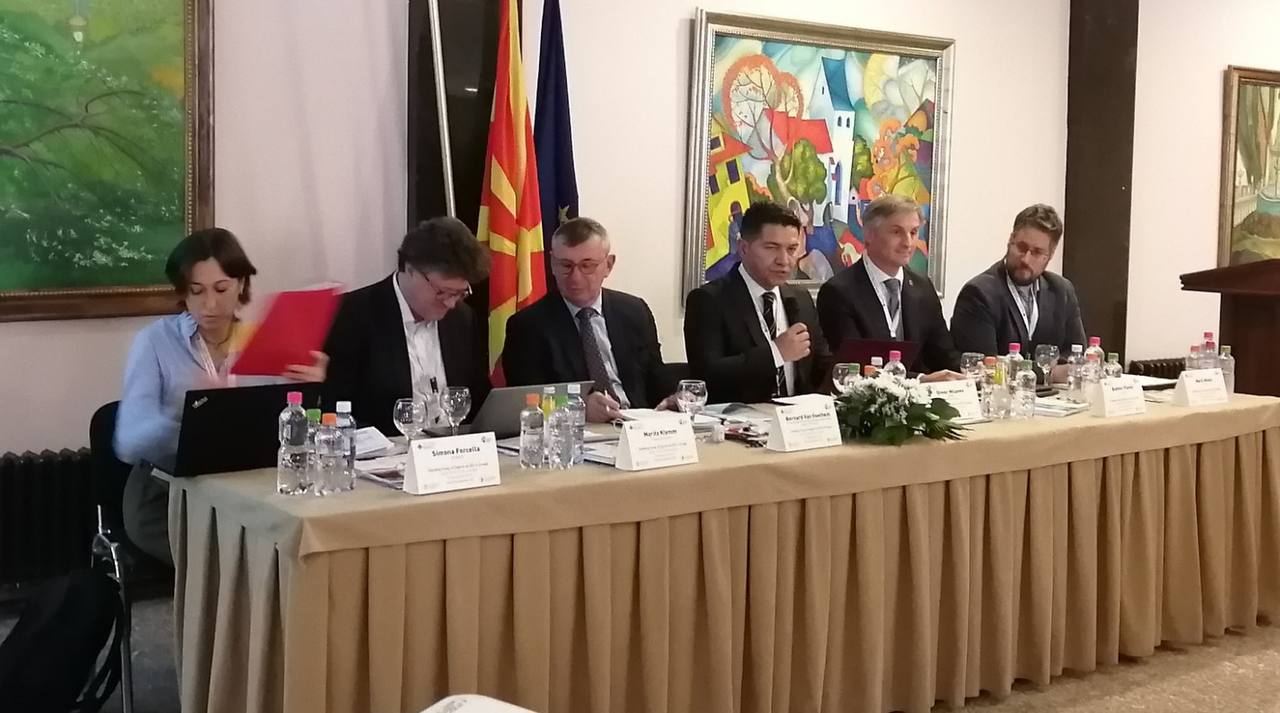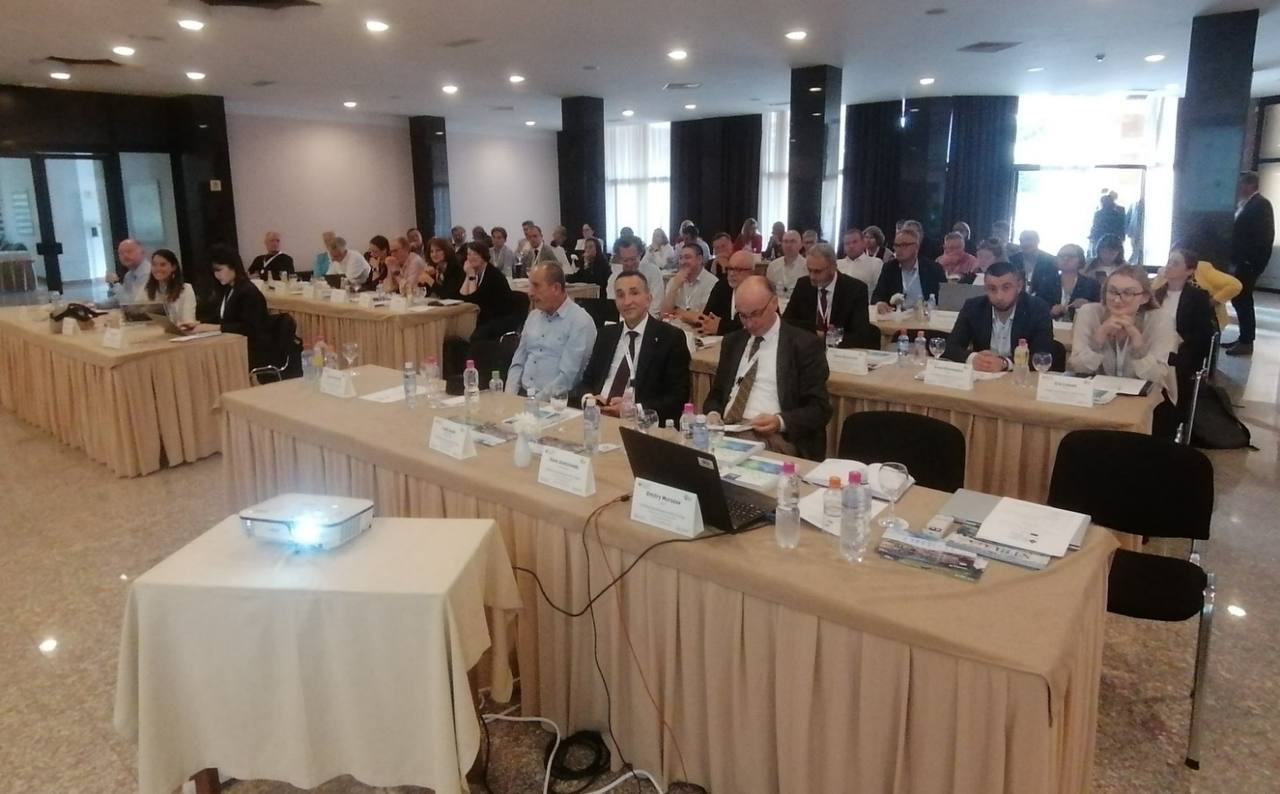The 23rd meeting of the Standing Group of Experts on African Swine Fever (SGE ASF23) was held in Ohrid, North Macedonia, on 18–19 September 2024. The event was organized by the SGE ASF Secretariat and gathered participants from 19 member countries from the European region, with over 67 attendees.
The meeting was opened by Dr Budimir Plavsic, WOAH Regional Representative and Secretary of the Standing Group of Experts (SGE) ASF, along with Dr. Oliver Milanov, Delegate of North Macedonia, the hosting country. Mr Voirel Gutu from FAO Regional Office for Europe and Central Asia gave a recorded video welcome message to the participants. The meeting was chaired by Dr Van Goethem, President of GF-TADs for Europe. Dr. Plavsic welcomed all participants and experts, highlighting that this year marks the 10th anniversary of the SGE on ASF in Europe, a well-established best practice for coordination between Member countries, WOAH, FAO, and the European Commission’s Directorate-General for Health and Food Safety (SANTE). He also acknowledged the presence of the Deputy Prime Minister of North Macedonia, whose participation emphasized the government’s commitment to this mechanism and the implementation of international standards.
During the meeting, the World Organisation for Animal Health (WOAH), the Food and Agriculture Organization (FAO), and the European Commission (EC) provided a comprehensive overview of ongoing global and regional efforts to combat African Swine Fever. Following these updates, representatives from member countries gave brief presentations on the current epidemiological situation within their respective nations, sharing insights into their ASF prevention and control strategies.
This meeting placed particular emphasis on cross-border cooperation, a recurring theme due to the shared land borders among many member states and different approaches to managing the problem. The movement of wild boars across these borders poses a significant risk for ASF transmission, making international collaboration essential to mitigate the spread of the virus.
Experts from France, Albania, and Latvia shared case studies on their cross-border cooperation with neighboring countries, highlighting both successes and challenges encountered in managing ASF. Their presentations illustrated how coordinated policies, shared resources, and communication are vital in addressing the unique complexities of border regions.
A representative from the European Union Reference Laboratory (EURL) also gave an online presentation, focusing on interlaboratory coordination and support for ASF diagnosis, specifically targeted toward Western Balkan countries.
The event also attracted International Atomic Energy Agency (IAEA), whose representative shared its activities on ASF mainly related to technical cooperation (TCP) and coordinated research projects (CRP). IAEA showed how many Emergency Diagnostic Packages were delivered and events organised through Animal production and Health programs and demonstrated iVetNet Information Platform – One Stop Shop for Information Sharing.
One of the highlights of the event was a presentation by an expert from the Friedrich-Loeffler-Institute (Germany), who discussed the challenges of managing wild boar populations in cross-border areas. This presentation generated significant interest, as it addressed the practical difficulties of wildlife management in the context of ASF control.
Group Exercise
A key interactive component of the meeting was a group exercise designed to develop two actionable recommendations for improving cross-border cooperation (CBC) in the region. Participants engaged in a brainstorming session to identify factors that strengthen or weaken CBC efforts.
Strengthening factors included the establishment of formal agreements, the development of common policies, regular training sessions, and the sharing of expertise and experiences across borders. On the other hand, participants identified weakening factors such as a lack of transparency, insufficient funding, and limited institutional capacity. These discussions were centered on learning from past experiences and identifying new opportunities for improving ASF prevention and control efforts through cross-border initiatives.
The following countries are members of the SGE ASF:
Belarus, Bosnia and Herzegovina, Bulgaria, Croatia, Czechia, Estonia, Germany, Greece, Hungary, Italy, Kosovo*, Latvia, Lithuania, Moldova, Montenegro, North Macedonia, Poland, Romania, Russia, Serbia, Slovakia, Sweden, and Ukraine.
*This designation is without prejudice to the position on status and is in line with UN Security Council Resolution 1244/99 and the International Court of Justice Opinion on the Kosovo declaration of independence.
Organizers, experts, observers, and participants evaluated the event as both highly important and useful to maintain exchanges on this subject amongst the parties involved, with a strong level of organization.
The 24th meeting of the Standing Group of Experts on African Swine Fever (SGE ASF24) in Europe under GF-TADs is scheduled for April 2024 in Sarajevo, Bosnia and Herzegovina. This upcoming session will continue building on the collaborative efforts of the SGE ASF to address the ongoing ASF threat in the region.
Recommendations and Resources
A set of recommendations, developed by ASF experts prior to the meeting and refined through discussions during SGE ASF23, was shared with participants on the final day of the event: recommendations
The materials** used are accessible through the agenda provided below:


